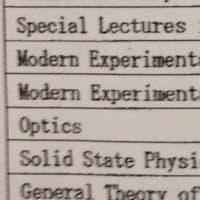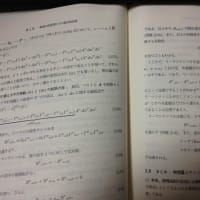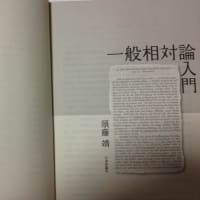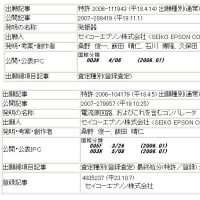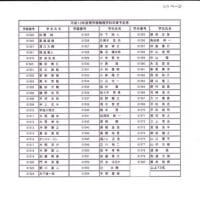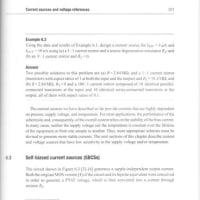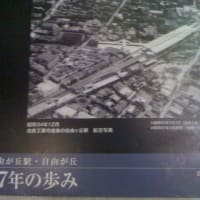まず、圧倒的なお金がでないと、たいして研究は進まない。
ニュートンの法則の前後で、どのような社会的背景で、
力学が応用され、科学的発見と産業技術の発展がもたらされたのかを見たい。
王立協会
これは、調査にとって外せない、西欧科学文化の特徴ではないだろうか。
この協会による初めての学会発表といえるものが、確率統計学に関する、ベイズの発表。
神学も修めているところが興味深い。
ベイズの定理
P.S. 先月号の大学への数学の学コンの確率の問題は、これを使わないと解けないのでは??
協会のモットに関しては以下のように記載されている。
”モットーは"Nullius in verba"(ラテン語で「言葉によらず」)。これは古代ローマの詩人であるホラティウスからの引用で、原文は"Nullius addictus judicare in verba magistri"(「権威者の伝聞に基づいて(法廷で)証言しない」)。つまり、聖書、教会、古典などの権威に頼らず証拠(実験・観測)を持って事実を確定していくという近代自然科学の客観性を強調するものである。”
主要な会員である、あのボイル・シャルルの法則の ボイル氏
ボイルレクチャーのような、興味深いレクチャーをしている。
そこには、以下に示されるように、ベンチャー企業や史上初めて量産的印刷技術を開発したグーテンベルクの活動どうよう、やはり、資金調達力がポイントになっているようだ。
The lecturers were specifically charged to prove the truth of the Christian religion against infidels, without descending to any controversies among Christians; and to answer new difficulties, scruples, etc. Some lecturers targeted Christian Deism.[3] A learned theologian within the Bills of Mortality, was to be elected for a term, not exceeding three years, by Thomas Tenison (later Archbishop of Canterbury), and three others.[4] To support the lectures, Boyle assigned the rent of his house in Crooked Lane. But the fund proving precarious, the salary was ill-paid. To remedy this, Archbishop Tenison procured a yearly stipend of 50 pounds, forever, to be paid quarterly, charged on a farm in the parish of Brill, Buckinghamshire.[5]
それよりも大事なのは、アイザック・ニュートンがこの講義に関して、次のように述べていることだろう。
"Sir, When I wrote my Treatise about our System, I had an Eye upon such Principles as might work with considering Men, for the Belief of a Deity; nothing can rejoice me more than to find it useful for that Purpose." [1][2]
神学では、理屈抜きに、信仰の存在と将来的保存が前提とされているが、では
信仰とはなんだろう?
そうか、例えば、赤ん坊は、お母さんを疑ったりはしないし、できない。
根拠も抜きに、事実上信じきることができるものって、現実的な物理的存在としては、お母さんと太陽くらい。
ニュートンが、言葉によって自然を言いくるめるのではなく、データを集めて論証することを目指している科学をやっているにもかかわらず、
そんなことを気にしているのは、皆、宗教をやるひとは、自分達でお金を出し合っていることだろうからだ。つまり、生活上にたっぷりコミットしている信者が
すでに大勢いて、その人たちの信頼を少しでも得る或いは最低、気を損ねないでいるには、それなりの配慮が必要だからだろう。
レトリックを駆使して、どうにか信仰と折り合いをつけようとした違いない。
宗教と科学の関係には、こうある。
Many theologians, philosophers and scientists in history have found no conflict between their faith and science. Biologist Stephen Jay Gould, other scientists, and some contemporary theologians hold that religion and science are non-overlapping magisteria, addressing fundamentally separate forms of knowledge and aspects of life. Scientists Francisco Ayala, Kenneth R. Miller and Francis Collins see no necessary conflict between religion and science. Some theologians or historians of science, including John Lennox, Thomas Berry, Brian Swimme and Ken Wilber propose an interconnection between them.
とはいえ、宗教団体が科学の活動に投資することがあっても、科学は宗教にお布施を支払いそうにないだろう。
国際科学委員会は次のように考えている。
Science and religion are based on different aspects of human experience. In science, explanations must be based on evidence drawn from examining the natural world. Scientifically based observations or experiments that conflict with an explanation eventually must lead to modification or even abandonment of that explanation. Religious faith, in contrast, does not depend only on empirical evidence, is not necessarily modified in the face of conflicting evidence, and typically involves supernatural forces or entities. Because they are not a part of nature, supernatural entities cannot be investigated by science. In this sense, science and religion are separate and address aspects of human understanding in different ways. Attempts to pit science and religion against each other create controversy where none needs to exist.[30]
しかし、民間には、双方の対話論者達がいる。
"The Institute on Religion in an Age of Science is established
to promote creative efforts leading to the formulation, in the light of contemporary knowledge, of effective doctrines and practice for human welfare;
to formulate dynamic and positive relationships between the concepts developed by science and the goals and hopes of humanity expressed through religion; and
to state human values in such universal and valid terms that they be understood by all peoples, whatever their cultural background or experience, in such a way as to provide a basis for world-wide cooperation.
これは面白い可能性への挑戦ではある点で、興味深い活動だ。
IRASのホームページ ・・・こうなると、ますます、科学は宗教を無視できないとわかる。
こんなジャーナルもあるようだが、
ここにこびるようでは、国際科学委員会から馬鹿にされるかもしれない・・・・独立の立場を主張している限り、経済的独立は当然だろうから。
ニュートンの法則の前後で、どのような社会的背景で、
力学が応用され、科学的発見と産業技術の発展がもたらされたのかを見たい。
王立協会
これは、調査にとって外せない、西欧科学文化の特徴ではないだろうか。
この協会による初めての学会発表といえるものが、確率統計学に関する、ベイズの発表。
神学も修めているところが興味深い。
ベイズの定理
P.S. 先月号の大学への数学の学コンの確率の問題は、これを使わないと解けないのでは??
協会のモットに関しては以下のように記載されている。
”モットーは"Nullius in verba"(ラテン語で「言葉によらず」)。これは古代ローマの詩人であるホラティウスからの引用で、原文は"Nullius addictus judicare in verba magistri"(「権威者の伝聞に基づいて(法廷で)証言しない」)。つまり、聖書、教会、古典などの権威に頼らず証拠(実験・観測)を持って事実を確定していくという近代自然科学の客観性を強調するものである。”
主要な会員である、あのボイル・シャルルの法則の ボイル氏
ボイルレクチャーのような、興味深いレクチャーをしている。
そこには、以下に示されるように、ベンチャー企業や史上初めて量産的印刷技術を開発したグーテンベルクの活動どうよう、やはり、資金調達力がポイントになっているようだ。
The lecturers were specifically charged to prove the truth of the Christian religion against infidels, without descending to any controversies among Christians; and to answer new difficulties, scruples, etc. Some lecturers targeted Christian Deism.[3] A learned theologian within the Bills of Mortality, was to be elected for a term, not exceeding three years, by Thomas Tenison (later Archbishop of Canterbury), and three others.[4] To support the lectures, Boyle assigned the rent of his house in Crooked Lane. But the fund proving precarious, the salary was ill-paid. To remedy this, Archbishop Tenison procured a yearly stipend of 50 pounds, forever, to be paid quarterly, charged on a farm in the parish of Brill, Buckinghamshire.[5]
それよりも大事なのは、アイザック・ニュートンがこの講義に関して、次のように述べていることだろう。
"Sir, When I wrote my Treatise about our System, I had an Eye upon such Principles as might work with considering Men, for the Belief of a Deity; nothing can rejoice me more than to find it useful for that Purpose." [1][2]
神学では、理屈抜きに、信仰の存在と将来的保存が前提とされているが、では
信仰とはなんだろう?
そうか、例えば、赤ん坊は、お母さんを疑ったりはしないし、できない。
根拠も抜きに、事実上信じきることができるものって、現実的な物理的存在としては、お母さんと太陽くらい。
ニュートンが、言葉によって自然を言いくるめるのではなく、データを集めて論証することを目指している科学をやっているにもかかわらず、
そんなことを気にしているのは、皆、宗教をやるひとは、自分達でお金を出し合っていることだろうからだ。つまり、生活上にたっぷりコミットしている信者が
すでに大勢いて、その人たちの信頼を少しでも得る或いは最低、気を損ねないでいるには、それなりの配慮が必要だからだろう。
レトリックを駆使して、どうにか信仰と折り合いをつけようとした違いない。
宗教と科学の関係には、こうある。
Many theologians, philosophers and scientists in history have found no conflict between their faith and science. Biologist Stephen Jay Gould, other scientists, and some contemporary theologians hold that religion and science are non-overlapping magisteria, addressing fundamentally separate forms of knowledge and aspects of life. Scientists Francisco Ayala, Kenneth R. Miller and Francis Collins see no necessary conflict between religion and science. Some theologians or historians of science, including John Lennox, Thomas Berry, Brian Swimme and Ken Wilber propose an interconnection between them.
とはいえ、宗教団体が科学の活動に投資することがあっても、科学は宗教にお布施を支払いそうにないだろう。
国際科学委員会は次のように考えている。
Science and religion are based on different aspects of human experience. In science, explanations must be based on evidence drawn from examining the natural world. Scientifically based observations or experiments that conflict with an explanation eventually must lead to modification or even abandonment of that explanation. Religious faith, in contrast, does not depend only on empirical evidence, is not necessarily modified in the face of conflicting evidence, and typically involves supernatural forces or entities. Because they are not a part of nature, supernatural entities cannot be investigated by science. In this sense, science and religion are separate and address aspects of human understanding in different ways. Attempts to pit science and religion against each other create controversy where none needs to exist.[30]
しかし、民間には、双方の対話論者達がいる。
"The Institute on Religion in an Age of Science is established
to promote creative efforts leading to the formulation, in the light of contemporary knowledge, of effective doctrines and practice for human welfare;
to formulate dynamic and positive relationships between the concepts developed by science and the goals and hopes of humanity expressed through religion; and
to state human values in such universal and valid terms that they be understood by all peoples, whatever their cultural background or experience, in such a way as to provide a basis for world-wide cooperation.
これは面白い可能性への挑戦ではある点で、興味深い活動だ。
IRASのホームページ ・・・こうなると、ますます、科学は宗教を無視できないとわかる。
こんなジャーナルもあるようだが、
ここにこびるようでは、国際科学委員会から馬鹿にされるかもしれない・・・・独立の立場を主張している限り、経済的独立は当然だろうから。










